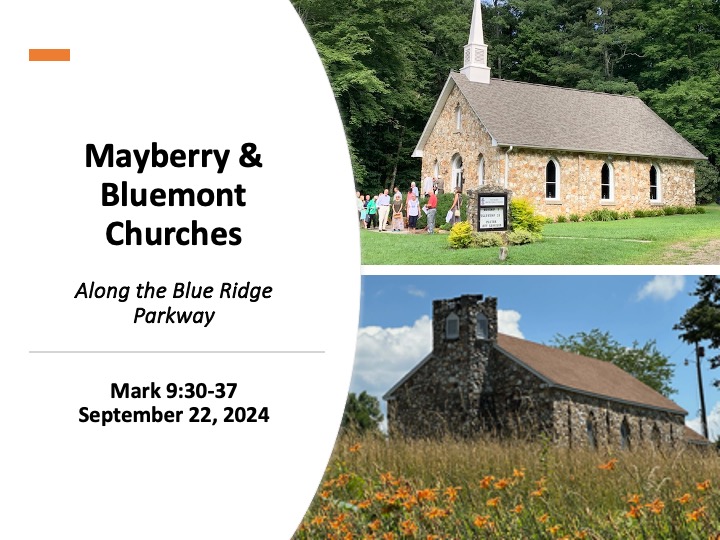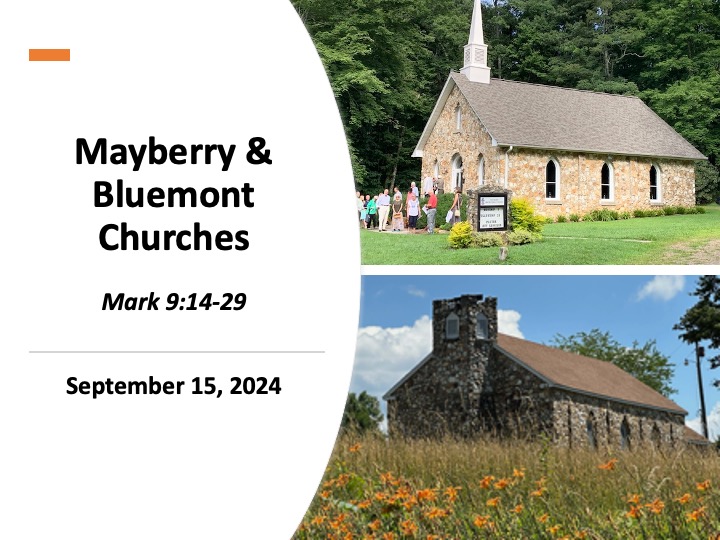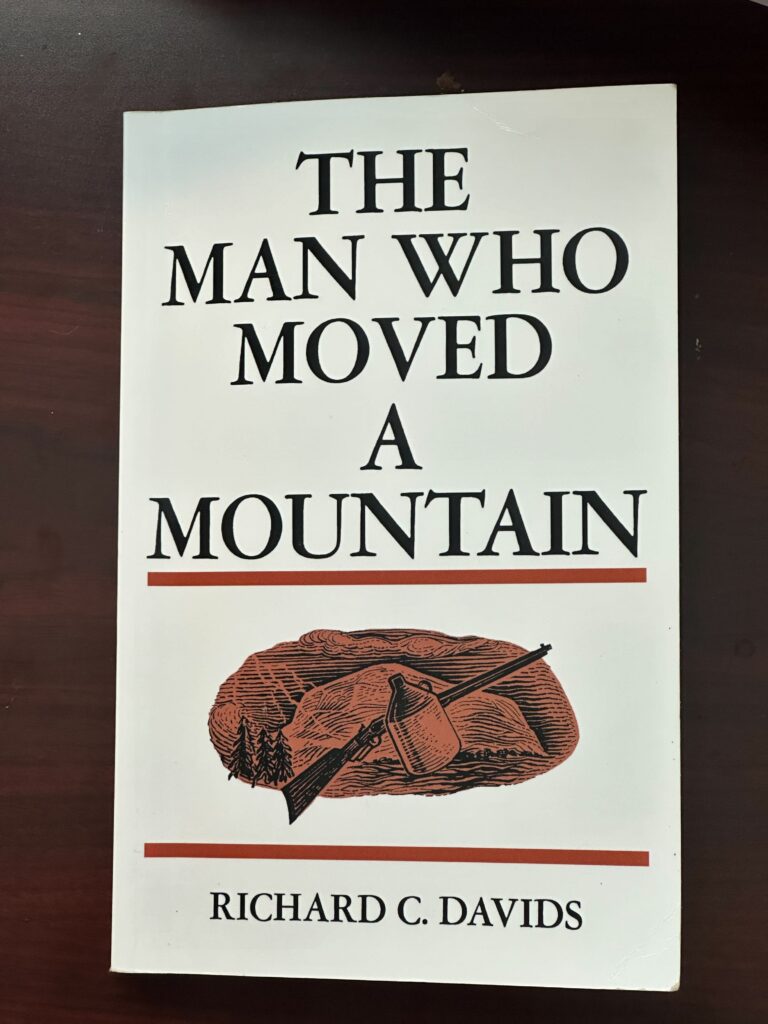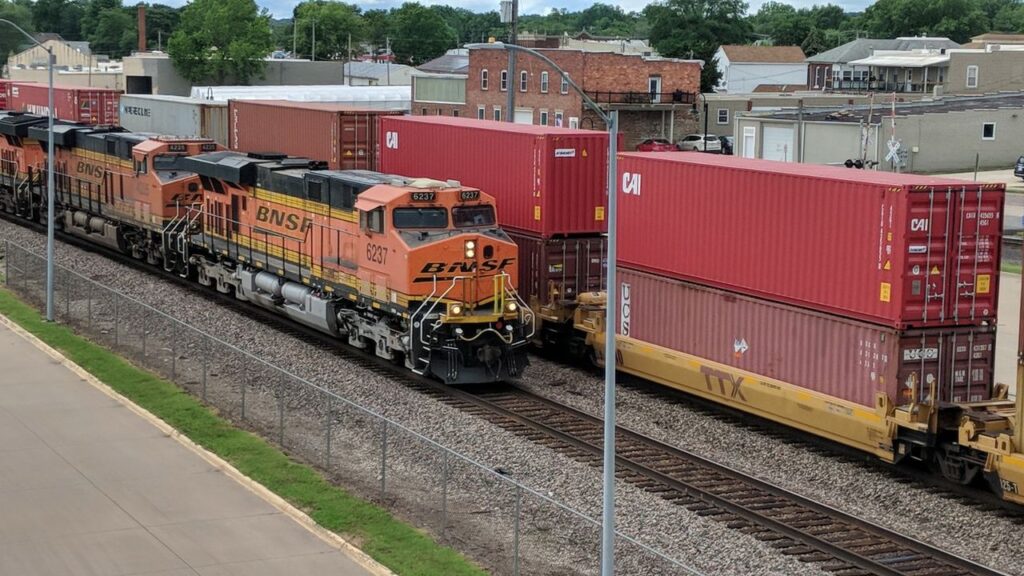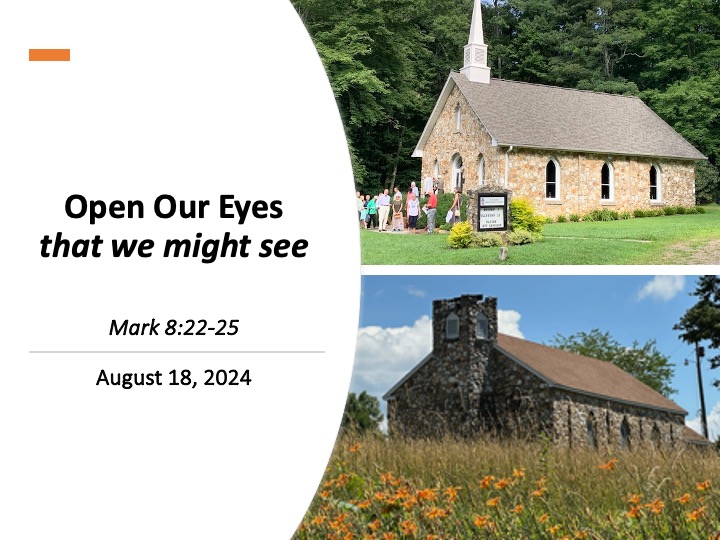Jeff Garrison
Mayberry and Bluemont Churches
Mark 10:17-31
October 20, 2024
At the beginning of worship:
One of my favorite C. S. Lewis books, which I have spoken about before, is The Great Divorce.[1] This isn’t a divorce between a man and woman, such as what Jesus discussed early in the 10thchapter of Mark.[2] Lewis divorces heaven and hell. In the 18thCentury, William Blake wrote the epic poem, The Marriage of Heaven and Hell. Two centuries later, Lewis decided a divorce was in order.
In the book, hell is a gray drab place. But from hell, there is a bus that takes the residents up above the clouds to the outskirts of heaven. And those who travel on the bus are free to make their way on to the glorious eternal city. But they must leave everything behind as they are clothed properly for heaven. In Lewis’ allegory, most of those who get to where they can see heaven are like the rich man in our gospel story today. They just can’t do it. The blinding light of glory reveals their hollowness. They want to hold on to what they have, including their self-esteem and dreams, grudges and hatred. If we want to follow Jesus, we must realize he places a demand on our entire lives.
Before the reading of scripture:
As I pointed out a few weeks ago, Jesus and the disciples are now on a journey to Jerusalem. And we know what will happen there. But there are still times for ministry, which often happens along the road, as we see in today’s passage.
One of these times for ministry is a man often referred to as the rich young ruler. Mark only tells us he’s a man of wealth. Matthew tells us he’s young and Luke identifies him as a ruler.[3] Let’s hear the passage.
Read Mark 10:17-31
We like being in control. We want to manage everything, even our salvation. Yet, I suggest, that’s a dangerous idea. The Presbyterian and Reformed concept of election (or predestination) acknowledges not only God’s sovereignty, but that it’s much better to let God be in charge. We tend to screw things up.
In our text, a man approaches Jesus. The man shows reverence toward Jesus, calling him “Good Teacher,” and asking what’s required for eternal life. At first, Jesus seems to play with the man.
“Why do you call me good?” Jesus asks. In the first century, those who were serious about the commandments only reserved the adjective “Good” or “Great” for God, not for individuals.[4] And while Mark makes this case that Jesus is God, this hasn’t been revealed to this man.[5]
Jesus then recalls the commandments which have to do with our relationships with others: don’t murder, commit adultery, steal, lie, or cheat, and honor your parents.
And the man, without irony, readily admits he has obeyed these commandments since his youth. I say without irony because Jesus appears to accept his answer as the truth, and he loves the man. He wants the man as a disciple. Let’s have a baker’s dozen, 13 disciples.
But there’s just one more thing Jesus says he needs to do… sell everything and follow him.
I don’t know why Jesus didn’t ask him to double or even triple his tithe. Well, I do know the reason, but think how much his doubling his tithe would increase the pot of money available to the disciples for mission. But Jesus doesn’t want a fraction of us. Jesus wants our total devotion, and the man couldn’t do it. There was something else he loved more.
Reading behind the text, we can see how this rich man essentially asks, “how much more do I need to do.” In other words, he asks, “What’s the minimum for me to get into heaven?” He obeys the commandments out of self-interest, not the love of God.[6] That’s his problem. He looks out for himself. Even his love for God has to do with what is good for him.
Augustine of Hippo, the great theologian of the early church, suggested we either first love God or ourselves.[7] Obviously, this man loved himself. It’s our love of God which allows us to properly love ourselves and others.
The last we hear from the man are his footsteps as he sulks away with a heavy heart. A very rich man, he just couldn’t do what Jesus asked.
Jesus turns to the disciples who have witnessed this encounter. He asks them twice if they understand how difficult it is to get into the kingdom of God… Eyes opened wide in response. They stand aghast, desiring reassurance, not barriers.
Jesus then tells the infamous camel and the eye of a needle parable.
From what we know, none of the disciples were rich. But maybe they saw riches as a sign of God’s favor. Unfortunately, there are still some people like that today, proclaiming a prosperity gospel. But this story undercuts the idea that wealth equals God’s favor.
What does this story mean to us? Can I get into heaven a little easier by not being too rich? Like maybe for a middle-class person, it’d be like a dog or cat getting through the eye of the needle.
It shouldn’t take us long to conclude, we don’t stand a chance. That’s the point Jesus drives at. Eternal life isn’t anything we can do on our own.[8] So they ask, “Who has a chance for salvation?”
Jesus agrees that if we try to obtain salvation on our own, we’ll fail. But with God, everything is possible.
Peter then reminds Jesus that he and the others have bet all they had on Jesus.
Finally, Peter finds reassurance. Jesus says they’ll get it all back, many times more. But even here, Jesus doesn’t promise pie-in-the-sky. For he also acknowledges they’ll also be persecutions. This world in which we follow Jesus is not a utopia.[9] But the “bonus” at the end is the kingdom, eternal life.
Jesus concludes this section with a reminder of how God’s economy works. This is a phrase we hear over and over in the synoptic gospels.[10] Many who are great, who are on the top in this world will end up last. And those on the bottom will be first. Do you want to be first or last now or later? It’s a paradox.
Now, I want to go back to this camel going through an eye of a needle. I have vague memories of discussing this parable in a Junior High Sunday School class a few years ago. And I think we got it wrong. We discussed how molecules and atoms could be broken apart, slid through the needles’ eye, and reassembled. Obviously, we’d seen too much Star Trek. We were too serious to figure out how it was possible to get that camel through the eye as if our salvation depended on it. It doesn’t.
What Jesus says is that trying to earn our own salvation is like a camel trying to get through the eye of a needle, not that we or God must get the camel through to obtain salvation.
This is an example of Jesus using hyperbole for humor while making a serious point.[11] One way to make a joke is to take an idea and blow it out of portion. That’s what Jesus does here, as he drives home the idea of our dependence upon God.
Just try to image how silly this word picture looks—a camel, one of the larger animals in that part of the world, compared to such a minute opening, one I’d have to put on my glasses to see. This is funny, in a “Far Side” kind of fashion. You probably never considered The Far Side as a source of theology, have you? You should.
Sadly, instead of seeing humor in the parable, people look for loopholes. It’s been going on for a long time. Older texts speak of rope instead of camel. Obviously, the scribes could accept the absurdity. But you can’t thread a rope through a needle’s eye. And then there are those who, instead of a needle, point to a camel’s gate in Jerusalem. This was the gate where the beasts had to get on their knees to pass through. There’s just one problem. In Jesus’ day, there wasn’t a “Camel’s Gate” in Jerusalem. That gate came about roughly 900 years later.[12]
Consider the rich man of our story as an example. He can be any of us. Even the poor cling to our old dying world, to what they have, and are not willing to let go.[13] Just think about those who ignore warnings to get out of the way from a hurricane because they want to protect their stuff.
In this passage, Jesus reminds us that the call to discipleship, which I hope you all answer, requires priority over all other allegiances. We must shed our old baggage. Yes, wealth is a danger, but only one of many dangers. Anything we place between us and God is spiritually dangerous.
It’s not by chance that this story comes on the heels of Jesus telling the disciples they must come to the kingdom like a child. Children are totally dependent on their parents, on adults. We must trust Jesus just as a child trusts his or her parents.
Think about children and how they laugh. They laugh at the silliest of things. We adults think we must be more serious. I wonder if, when Jesus said that if we want to enter the kingdom of God we must come like a child, he meant that we must come laughing at his joke like a child?[14] The great mid-20th Century Theologian Karl Barth suggests that “laughter is the closest thing to the grace of God.”[15] It’s something to ponder.
So don’t worry about threading that needle. Instead, place your trust in God’s hands and follow his Son. This is the message of the church and the reason this congregation was established, 100 years ago. Things change, but our message remains the same. With God, all things are possible. It’s our job to continue to proclaim it. Amen
[1] C. S. Lewis, The Great Divorce (1945).
[2] Mark 10:1-13. See https://fromarockyhillside.com/2024/10/06/jesus-and-divorce/
[3] Matthew 19:16 and Luke 18:18.
[4] James R. Edwards, The Gospel According to Mark (Grand Rapids, MI: Eerdmans, 2002), 310.
[5] Mark’s early miracles from healing, raising the dead, controlling the weather, and driving out demons, along with his forgiving of sins, builds to where an observer must acknowledge only God can do these things.
[6] Morna D. Hooker, The Gospel According to Saint Mark (1991, Hendrickson Publishing, 1997), 242
[7] Han-Lven Kantzer Komile, “The Augustine Insights on the Law of Double Love” a lecture at the Theology Matter’s Conference, Providence Presbyterian Church, October 9, 2024.
[8] Jesus challenges a false sense of security here. See William L. Lane, The New International Commentary on the New Testament: Gospel of Mark (Grand Rapids: Eerdmans, 1971), 369.
[9] Edwards, 316.
[10] See also Matthew 19:30; 20:16; Luke 13:30. It is also found in the Epistle of Barnabas and the Gospel of Thomas. See Edwards, 217, n42.
[11] Hooker, 243
[12] Edwards, 314. The idea of a camel’s gate appears to have come about in the 9th Century.
[13] Douglas R. A. Hare, Westminster Bible Companion: Mark (Louisville, KY: WJKP, 1996), 126.
[14] See Mark 10:14. See also Matthew 19:14 and Luke 18:16.
[15] https://www.spiritualityandpractice.com/practices/features/view/20120




